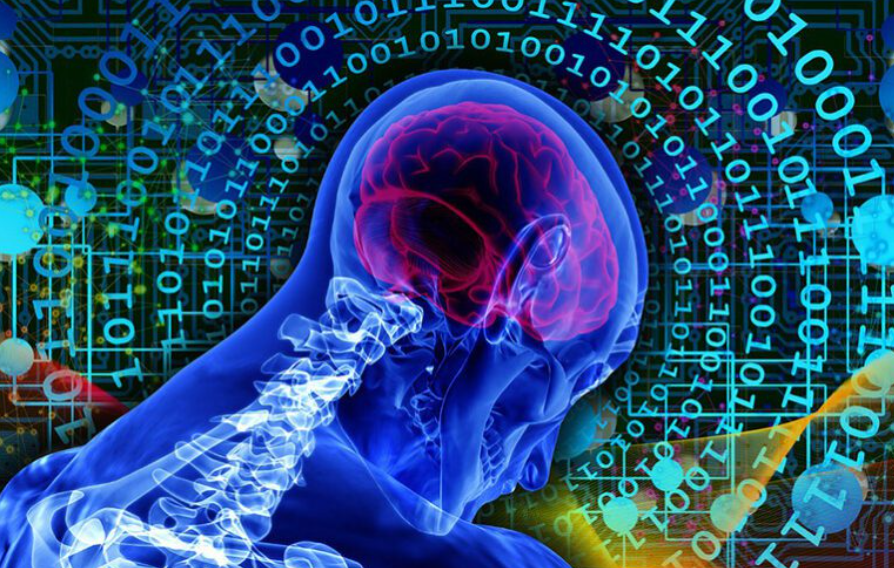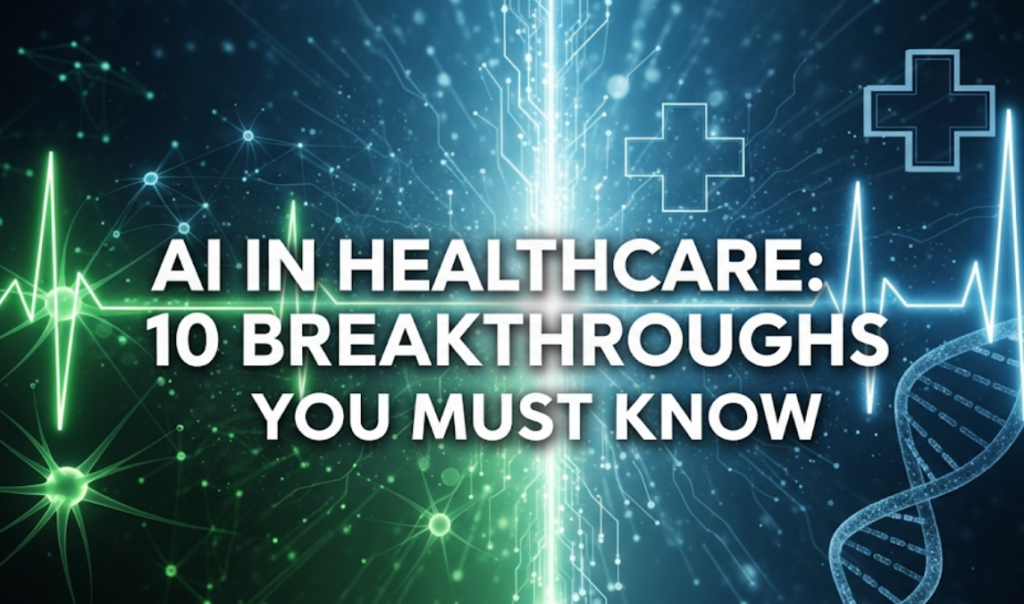Introduction
AI in the healthcare sector is transforming the way physicians treat their patients and save lives. This wonderful technology assists medical practitioners to work with speed and better judgment. Artificial intelligence is enhancing the healthcare industry by improving the identification of diseases at an early stage and developing new drugs.
AI applications are now available in the healthcare sector and can read x-rays, predict health issues, and even assist during the operating room. These revolutionary technologies are no longer science fiction. They are practical tools that can be applied regularly in hospitals and clinics in order to improve the way patients receive care.
Medical artificial intelligence is capable of handling vast data volumes within a few seconds. This speed assists doctors to make faster decisions which may save lives. The technology lowers human errors, as well as makes treatments more precise.
The Force Behind Medical AI Technology
Learning Medicine by Smart Machines
The technology of artificial intelligence in healthcare is based on learning from millions of medical cases. These intelligent systems analyze trends in patient records, medical images, and treatment results. Certain problems are more easily identified when they receive a large amount of information.
Machine learning algorithms are capable of detecting minute details that a human eye may not notice. This attribute qualifies them as great collaborators to the health workers. The AI does not surpass doctors but empowers them and improves their accuracy.
Evidence-Based Medicine
Healthcare produces vast quantities of data on a daily basis. Information developed by patient records, test results, and medical images would take humans years to understand. They can be analyzed almost instantly by AI systems and reveal significant patterns.
This data analysis aids in predicting the most effective treatment to be applied to each patient. It also helps to detect patients who may develop complications even before the symptoms are experienced.
Breakthrough #1: Groundbreaking Disease Detection Systems
Early Cancer Detection and Diagnosis
Now, with the help of AI-powered imaging systems, it is possible to detect cancer at its initial stages. These machines scan medical images with unbelievable accuracy. They are able to identify tumors that are too small to be detected by doctors easily.
The AI system used by Google can detect breast cancer in mammograms with an accuracy of 94.5%. This is superior to most practicing radiologists. By detecting diseases early via artificial intelligence, patients will be able to initiate treatment earlier, meaning they have a high probability of recovery.
Heart Disease Prevention Through Smart Analysis
AI in cardiovascular monitoring looks at heart health through analysis of multiple data points. They consider blood pressure trends, cardiac rhythm data and lifestyle. These systems are able to anticipate a heart attack days or weeks in advance.
This early alert gives the doctors time to make changes to medications or lifestyle. Thousands of lives are saved by AI.
Breakthrough #2: Precision Medicine Through Genetic Analysis
Individual Care Maps
Currently, AI in medicine develops a treatment plan in accordance with the personal genetic composition. These systems are used to predict patient response to various medications based on the pattern of DNA. This individual treatment minimizes the side effects and increases the success rate of the treatment.
Pharmacogenomic AI assists physicians in selecting the appropriate medication and dosage to be administered to the patient. This eliminates the trial and error method which was prevalent in the past.
Rare Disease Diagnosis
Genetic AI technologies can detect rare diseases which only a small number of individuals are prone to across the globe. These rare conditions are usually not diagnosed until several years later. These rare conditions can be identified by AI because they have genetic patterns.
Rare diseases are diagnosed quickly, and therefore the patients can be treated at a much faster rate. Thousands of families have already received answers to some mysterious health conditions with the help of this technology.
Breakthrough #3: Surgical Robots and Intelligent Operating Rooms
Precision Surgery with Robots
AI-controlled surgical robots are more precise in their work than humans. These systems are able to make smaller and more precise cuts than a human. Thousands of surgeries have already been done with the help of the da Vinci Surgical System.
The AI robots minimize the complications of surgery and allow patients to heal more rapidly. These can be used to work in narrow areas inside the body without causing destruction to adjacent tissues.
Real-Time Surgery Guidance
Smart operating rooms rely on AI to help guide surgeons through complex surgery. These systems are used to give real-time feedback on anatomy, blood flow, as well as tissue health. Surgeons are able to view significant information superimposed on their view of the surgery.
The technology saves surgery time and enhances results. It is also useful to train new surgeons as they can always be guided on what to do during an operation.
Breakthrough #4: Mental Health Monitoring and Support
Digital Therapy Assistants
Millions of individuals now have mental health assistance available to them through AI chatbots. These are digital therapists that have meaningful conversations with patients through natural language processing. They are able to identify symptoms of depression, anxiety, and other mental problems.
There are 24/7 mental health apps, such as Woebot and Wysa. They apply evidence-based methods of therapy to enable individuals to control their thoughts and feelings.
Pattern Recognition for Suicide Prevention
AI systems track social media postings, phone habits, and other online activities in order to detect individuals who are at risk of suicide. These systems have the capacity to warn mental health workers that a person requires urgent assistance.
This is a preventive measure that has already prevented many suicides by assisting people before they hit the crisis stage.
Breakthrough #5: Drug Discovery and Development
Faster Medicine Creation
Artificial intelligence shortens the pharmaceutical discovery process by years or decades. The conventional drug development process is time-consuming (10-15 years) and expensive (billions of dollars). Artificial intelligence can be used to virtually test millions of combinations of drugs before the laboratory work has even been started.
Organizations such as Atomwise are using AI to quickly discover potential drug compounds in weeks rather than years. This velocity ensures life-saving drugs are delivered to the patients at a high rate.
Repurposing Older Drugs
By examining their chemical properties and biological effects, AI systems can repurpose the drugs that are already available. This is a far quicker and cheaper method, compared to the development of completely new drugs.
The AI was used to find available drugs that would treat the COVID-19 pandemic. This quick reaction saved many lives as they gave a chance to be treated within a short period of time.
Breakthrough #6: Revolution in Medical Imaging
Better Diagnostic Accuracy
AI-assisted medical imaging systems are capable of detecting diseases on CT scans, MRIs, and X-rays with amazing precision. Such systems are able to detect pneumonia, bone fractures and brain tumors better than some human radiologists.
The AI system takes seconds to process images but at a high rate of accuracy. The speed enables emergency departments to make rapid decisions regarding patient care.
3D Medical Visualization
AI uses medical images to produce detailed 3D representations used by physicians in planning treatments. These virtual models allow surgeons to practice how to perform complex operations on real patients.
This is done to minimize the risk of surgery and enhance surgical outcomes. The 3D models of their condition are also available to patients so they can have better understanding of their treatment options.

Breakthrough #7: Predictive Health Analytics
Predicting Disease Outbreaks
AI systems are used to monitor health trends around the world to identify disease outbreaks before they occur. These systems collect information on travel trends, weather statistics and health statistics around the globe.
Early warning systems assist health officials in preparing resources and preventing pandemics. The technology found patterns of COVID-19 spreading and aided in directing the way people would respond to health issues.
Patient Risk Assessment
Predictive AI is used to study patient data in order to classify individuals who may end up having severe health issues. These systems examine the medical history, lifestyle factors, and genetic data in order to compute risk scores.
At-risk patients are closely monitored and preventive care is given. This preventive measure avoids a number of severe health issues.
Breakthrough #8: Improving Electronic Health Records
Smart Medical Records
AI systems automatically record medical conversations between doctors and patients and update medical records. This technology saves physicians time in the form of paperwork. Natural language processing helps in the accuracy with which the crucial medical data is captured.
Electronic records save hospital physicians time that would be used in the typing process. The AI makes sure nothing important is overlooked in medical records.
Clinical Decision Support
Health records are AI-based applications that can offer real-time treatment guidance on patient conditions and medical studies. The systems warn physicians of possible drug interactions and propose suitable remedies.
This clinical support minimizes medical errors and avoids use of non-evidence based care to patients. The AI is more like a learned colleague who has in their memory all medical studies that have ever been published.
Breakthrough #9: Remote Care and Telemedicine
Virtual Health Assistants
The use of virtual assistants operated by AI performs simple health checks using smartphones and computers. These systems will be able to monitor symptoms, vital signs with the help of device cameras, and other health recommendations.
These virtual assistants are able to help patients in remote areas access quality healthcare. People who are far from hospitals have access to basic medical care through the technology. For those interested in exploring more AI technology innovations across various industries, these advancements represent just the beginning of intelligent healthcare transformation.
Remote Patient Monitoring
Wearables are linked with AI systems to keep tracking the health of patients. Such systems monitor heart rate, blood sugar, blood pressure and other vital signs. They warn medical caregivers when patients require urgent care.
Patients with chronic diseases can remain at home and be monitored professionally. This will advance the standard of living and decrease the medical expenses.
Breakthrough #10: Management of Infectious Diseases
Rapid Diagnosis Systems
The AIs used in detection can identify infectious diseases within several minutes rather than days. These systems analyze blood samples, throat swabs and any other samples with high speed and precision.
Quick diagnosis implies that patients receive adequate treatment in a timely manner. It also helps to stop the transmission of contagious diseases in that it detects infected people in time.
Solutions to Antibiotic Resistance
Artificial intelligence combats antibiotic-resistant microbes through the analysis of genetic patterns in microorganisms.
This precise method will minimize the excessive use of antibiotics and preserve these valuable drugs to be used later on.
Present Challenges and Future Solutions
Privacy and Security
Medical AI systems process sensitive patient data. This data must remain confidential and secure. Healthcare organizations strive to prevent unauthorized personnel from hacking and accessing this data.
Medical AI systems can be safe when implemented using new encryption procedures and security measures. Patients also have confidence that their health-related information is confidential.
Integration with Existing Systems
The problem with older computer systems is that many hospitals have been using them, which do not support the latest AI systems. These systems require time and money to upgrade but it is worth it.
Medical institutions are slowly updating their information technology infrastructure to facilitate AI applications. The transition enhances care provision to patients and streamlines the medical processes.
The Future of Smart Healthcare
New Technology on the Horizon
The next generation AI applications will offer further sophisticated features in healthcare services. AI analysis will be faster and more powerful with quantum computing. Brain-computer interfaces could assist in letting paralyzed patients manipulate prosthetic devices via their brains.
These technologies will simplify healthcare and make it more personalized in the future. Healthcare providers will administer treatments that are specific to the unique biology and circumstances of patients.
Global Health Impact
AI in medicine will someday touch all parts of the world. AI systems will make advanced medical expertise available to developing countries. This will make the world a global village and save millions of lives.
AI health apps on mobile devices will introduce quality healthcare to remote villages and underserved communities. Everyone will have access to basic medical knowledge and diagnostic abilities.

Frequently Asked Questions
What is AI in healthcare? Artificial intelligence systems utilized by healthcare providers to aid doctors in diagnosing disease, developing a treatment plan and enhancing patient care are called AI in healthcare. These smart tools are analyzing medical data and delivering insights that enable healthcare workers to make improved decisions.
How accurate is medical AI? Medical AI solutions tend to be as accurate as or more so than humans at certain tasks. Indicative of this, there are AI systems that can detect some types of cancer more than 95 percent of the time. Nevertheless, AI is most effective when it is used along with the expertise of doctors, instead of fully replacing them.
Is AI safe for medical use? Before applying medical AI systems in healthcare, medical AI systems go through rigorous testing and regulation. They have to comply with high safety standards and be approved by health authorities. When used correctly, AI improves patient safety because it reduces human errors.
Will AI replace doctors? AI will not replace doctors, but will ensure that they are more effective and efficient. AI provides support in the analysis of data and routine tasks, leaving doctors to attend to patients, make complicated decisions, and engage humans at an individual level with empathy and judgment.
How much does medical AI cost? Medical AI costs are diverse and based on how it will be used. Some AI tools are integrated into medical devices, whereas certain ones need to be purchased separately. Most health systems discover that AI is cost-effective and leads to increased efficiency and outcomes.
Are AI healthcare tools accessible to patients directly? There are numerous AI-based healthcare applications that enable consumers to access them through smartphones and wearable devices. These tools have the ability to track simple health parameters, deliver health data and offer preliminary symptom analysis. They, however, do not substitute for professional medical care.
Conclusion
AI in healthcare is among the greatest technological advancements in the history of humanity. These top ten breakthroughs demonstrate how artificial intelligence is changing all dimensions of medical care. With the possibility to detect diseases earlier and even tailor specific treatments, AI can save more lives than ever in the history of medicine.
These smart technologies have improved the future of healthcare. Patients are treated more effectively, physicians are more productive, medical research is developed at an unprecedented pace. With the current advancements in AI, more amazing things can be anticipated in the future that will help transform human health and wellbeing.
The adoption of these AI advances is beneficial to both healthcare professionals and patients. The technology makes medicine precise, accessible, and more competent for everyone. The era of intelligent healthcare is the era that will make all of humanity healthier.

